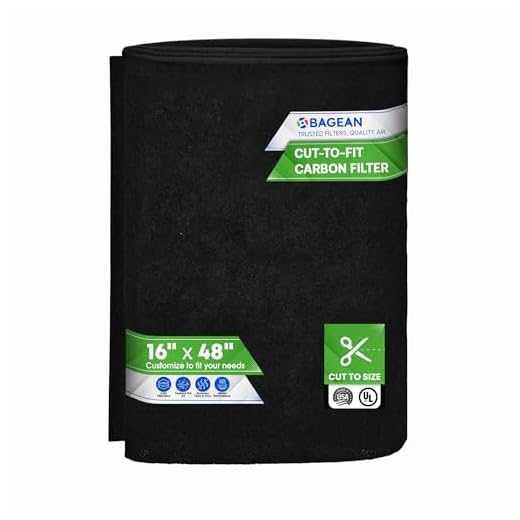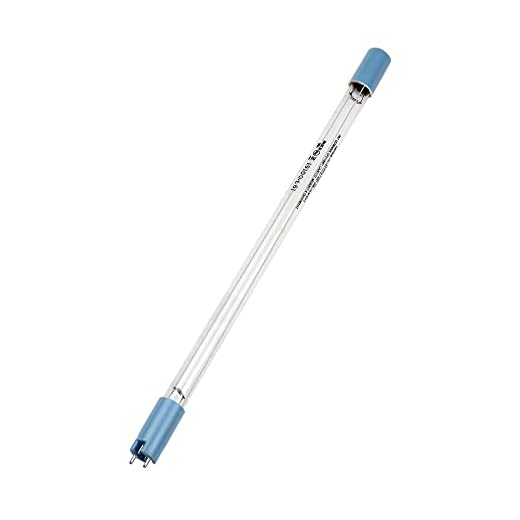




How Often Should You Replace Your Water Filter?
The frequency of water filter replacement can vary widely depending on the type of filter in use. Manufacturers typically provide specific guidelines, which often recommend changes every six months to a year. Factors such as water quality, usage levels, and filter type can all impact how often a filter needs to be replaced. For instance, a household with heavy water usage may require more frequent changes compared to a less active one.
Activated carbon filters may need to be swapped out every three to six months, while reverse osmosis systems typically last longer, often around two years before requiring replacement. UV filters, on the other hand, should be checked annually for bulb replacement. Paying attention to changes in water taste or clarity can also indicate that a filter may need to be replaced sooner than scheduled. Keeping track of replacement dates ensures optimal performance and maintains water safety.
Recommended Replacement Schedules
Most water filter systems come with specific guidelines on how often replacements should occur. For activated carbon filters, a replacement every six months is generally recommended, though this can vary depending on water quality and usage levels. Reverse osmosis systems might require replacements annually for its pre-filters and every two years for the membrane. Routine checks can help ensure optimal performance and quality.
Ultraviolet (UV) filters typically have their bulbs replaced annually to maintain effectiveness against microorganisms. Regular monitoring can help prevent issues before they arise. Keeping a calendar or setting reminders on your phone can assist in tracking replacement schedules effectively. Following these guidelines can significantly improve water quality and the lifespan of the filtration system.
DIY vs. Professional Water Filter Replacement
Many homeowners consider handling water filter replacements themselves to save money. This approach can be straightforward for systems like pitcher filters or faucet-mounted devices. Basic models often come with clear instructions, making it accessible for those willing to follow a few simple steps. However, some filters, especially those integrated into home plumbing systems, can be more complicated. In such cases, a DIY attempt may lead to improper installation, potentially affecting water quality or causing leaks.
On the other hand, enlisting a professional for water filter replacement ensures that the job is done correctly and efficiently. Experts have the training and experience to handle various system types. They can provide valuable insights into the specific needs of your water filtration system, ensuring optimal performance. While this option incurs additional costs, the benefits often outweigh the savings from a DIY approach, especially for complex or less familiar filtration systems.
Pros and Cons of Each Approach
Choosing between DIY and professional water filter replacement can greatly impact your experience. One of the main advantages of DIY replacement is cost. Homeowners can save money by doing the job themselves and purchasing the filters without paying for labor. Additionally, the process can often be straightforward, with many filters designed for easy installation. For those who enjoy hands-on projects, replacing the filter can be a satisfying task that fosters a sense of self-reliance.
On the other hand, professional services provide expertise and peace of mind. Technicians often possess the knowledge to address specific issues that may not be apparent to an untrained individual. They can ensure that the installation is done correctly, mitigating potential mistakes that might compromise water quality. However, this convenience does come at a higher price. Homeowners may need to weigh the value of their time and convenience against the costs involved in hiring a professional.
Understanding Different Types of Water Filters
Water filters come in various types, each designed to address specific contaminants and improve water quality differently. Activated carbon filters, for instance, effectively reduce chlorine, sediment, and volatile organic compounds while enhancing taste and odor. These filters work through adsorption, where impurities cling to the carbon surface. Reverse osmosis systems, on the other hand, use a semipermeable membrane to remove a wider range of contaminants, including heavy metals and dissolved solids. These systems can produce purified water but may waste some water in the process.
UV filters utilize ultraviolet light to kill bacteria and viruses, making them a great choice for those concerned about biological contaminants. While this method does not remove chemicals or sediment, it is often used in conjunction with other filtration methods for comprehensive protection. Understanding the strengths and limitations of each type can help consumers choose a system that best fits their specific needs and water quality concerns.
Comparing Activated Carbon, Reverse Osmosis, and UV Filters
Activated carbon filters work by adsorbing impurities and contaminants from water. They are particularly effective at removing chlorine, sediment, volatile organic compounds (VOCs), and bad tastes or odors. However, they do not effectively eliminate minerals, salts, and heavy metals, which means they might not be suitable for all water quality issues.
Reverse osmosis systems take a more comprehensive approach to filtration. They utilize a semi-permeable membrane to remove a wide range of contaminants, including dissolved solids, heavy metals, and even some bacteria and viruses. While they provide thorough purification, reverse osmosis units often require more regular maintenance and filter changes. UV filters serve a different purpose by using ultraviolet light to disinfect water, targeting microorganisms rather than chemical impurities. They are often used in conjunction with other filters to enhance water quality by ensuring it is free of pathogens.
FAQS
What happens if I forget to replace my water filter?
If you forget to replace your water filter, it can lead to reduced water quality, potentially allowing contaminants to pass through. This may result in unpleasant tastes or odors in your water, and in some cases, it can pose health risks.
How can I tell if my water filter needs to be replaced?
Signs that your water filter needs replacement include a decrease in water flow, unpleasant taste or odor, and visible discoloration of the filter. Additionally, many filters have indicators that signal when it’s time for a replacement.
Can I still use my water if I forgot to change the filter?
It’s best to avoid using the water until you replace the filter, especially if it has been overdue for replacement. Consuming water from an expired filter may expose you to contaminants.
What should I do if I realize I forgot to replace my water filter?
If you realize you’ve forgotten to replace your water filter, immediately stop using the water and replace the filter as soon as possible. You may also want to run the water for a few minutes to flush out any contaminants after changing the filter.
Are there any long-term effects of using an expired water filter?
Using an expired water filter can lead to long-term exposure to harmful contaminants, which may affect your health. Consistently ignoring filter replacements can also result in damage to your filtration system over time.
Related Links
Why Regular Replacement of Water Filters is Essential for Health
What to Consider When Setting a Replacement Schedule for Water Filters
